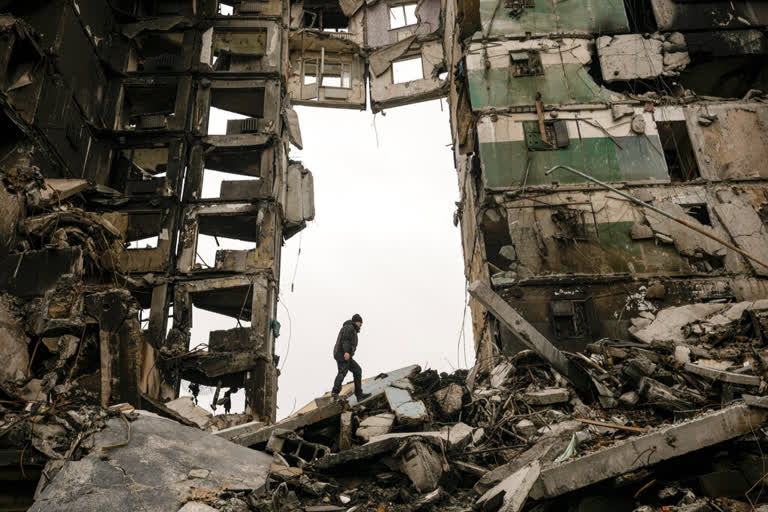New Delhi: Indicative of an unwillingness to be actively drawn into a conflict it has no inclination to be part of, India has refused to allow a military transport aircraft of the Japan Self-Defense Forces (SDF) to land and load relief material for Ukrainians affected by the ongoing war. On Thursday, the Indian foreign ministry spokesperson Arindam Bagchi evaded a direct reply on the issue. The spokesperson said that while Japanese commercial aircraft would be allowed to load aid at Mumbai for Ukrainians, SDF aircraft would be given ‘overflight’ clearance.
“We have conveyed our approval for picking of such supplies from India using commercial aircraft. We had also received a request for overflight clearance for Japanese SDF aircraft carrying humanitarian cargo for Ukraine. This was processed and approved as per established norms,” Bagchi said. The development came into focus after Sanae Takaichi, an influential legislator who is also the policy chief of the ruling LDP government in Tokyo.
Japanese media quoted Sanae Takaichi, an influential legislator who is also the policy chief of the ruling LDP government in Tokyo as saying in a meeting of the country’s Policy Research Council Board: “A situation has arisen in which India has refused to allow a Self-Defense Forces plane to land and pick up supplies… The acceptance of SDF aircraft was rejected by India, the point of loading.”
Takaichi, a close ally of former PM Shinzo Abe, was criticizing the ruling government’s lack of adequate preparation. “This is a clear case of insufficient preliminary coordination on the part of the government,” she was quoted in the local media. Under a Japanese plan, for two months from April-end to June-end and once every week, Japan’s SDF planes would collect relief material from the UN supply outposts in Mumbai and Dubai before delivering them for distribution among Ukrainian refugees in Poland and Romania.
The development is deeply interesting in the backdrop of the fact that India has maintained a balance in its friendly relations with Russia, the West and even Ukraine by not taking sides and actively participating in the ongoing conflict that began on February 24 when Russian forces mounted an offensive operation in Ukraine.
Till now, in pursuance of its stated policy of strategic autonomy and prioritizing peaceful negotiations between the warring sides, India has steadfastly refused to bow down to the US-led western line and has abstained from voting ten times at the UN. Moreover, in about a month or so, the BRICS summit is to take place where the issue of an alternative financial and integrated payment system is likely to be discussed that will help Russia override the stringent sanctions imposed by a US-led West bloc due to the ongoing war in Ukraine.
The sanctions have cut off Russia from the global financial system as well as from about half of its fold and forex reserves valued at more than $600 billion. BRICS, comprising Brazil, Russia, India, China and South Africa represent more than 40 per cent of humanity. The new sanctions also destroy the foundation of the existing international monetary and financial system based on the U.S. dollar, Siluanov said.
On April 9, Anton Siluanov, Russian finance minister, said during a BRICS ministerial meeting: “This pushes us to the need to speed up work in the following areas: the use of national currencies for export-import operations, the integration of payment systems and cards, our own financial messaging system and the creation of an independent BRICS rating agency.”
“The current crisis is man-made, and the BRICS countries have all necessary tools to mitigate its consequences for their economies and the global economy as a whole,” the minister had said. What makes the situation even more difficult is that India is also an important member of the ‘Quad’ or the Quadrilateral Security Dialogue, a grouping of India, US, Australia and Japan in what is commonly understood to be an anti-China platform..



